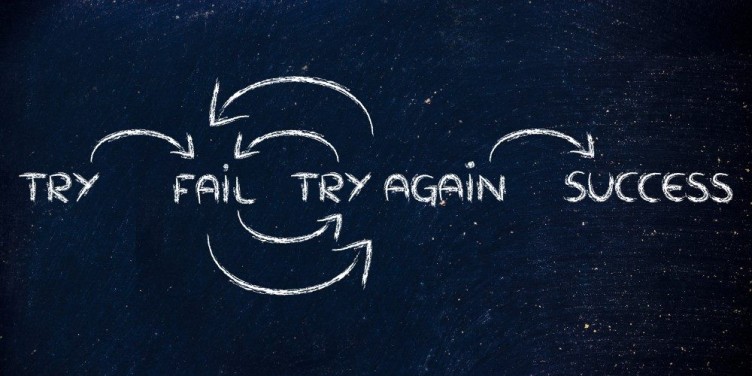Failure and adversity are often seen as negative experiences to be avoided, particularly for children from successful family businesses. Most of the time out of parent’s overprotective attitude and the fear of how their offspring can fail – parents constantly push children to act as per their way. In this effort, we miss the point that failure can offer unique opportunities for personal growth, skill development, and cultivating leadership qualities for their offspring.
As family business owners, we should explore how failure and adversity can teach the next generation of family members to become better leaders. By examining the lessons learned from setbacks, the development of resilience, the acquisition of problem-solving skills, and the cultivation of empathy, we will know the invaluable role failure plays in preparing future leaders to navigate the complexities of the business world.
Embracing Failure as a Catalyst for Growth
Overcoming the Fear of Failure: Fear of failure can be paralyzing, hindering personal growth and leadership development. It is important to cultivate a growth mindset that views failure as an opportunity for learning and improvement. By reframing failure as a stepping stone to success, individuals are more likely to take risks, innovate, and embrace new challenges.
Building Resilience and Perseverance: Resilience is a crucial attribute for effective leadership. Experiencing failure and adversity provides opportunities to build resilience and develop the ability to bounce back from setbacks. It teaches individuals to persevere, adapt to change, and maintain focus on long-term goals despite temporary setbacks.
Learning from Mistakes: Failures provide valuable lessons that can lead to personal and professional growth. It is important to analyse failures objectively, identifying the factors that contributed to the setback and exploring alternative approaches. By learning from mistakes, individuals can develop innovative solutions, refine strategies, and make more informed decisions in the future.
Developing Problem-Solving Skills
Fostering Creativity and Adaptability: Adversity and failure often spur creative thinking and encourage individuals to explore alternative perspectives and solutions. The ability to think creatively and adapt to changing circumstances is crucial for effective problem-solving. Failure provides an opportunity to develop these skills, as individuals are forced to find new approaches and think outside the box.
Learning to Manage Risks: Calculated risk-taking is an essential skill for business leaders. Failure can serve as a valuable teacher, helping individuals understand the consequences of their decisions and assess risks more effectively. By experiencing failure and learning from it, individuals can develop a more comprehensive understanding of potential outcomes and make better-informed decisions in the future.
Encouraging Collaboration and Teamwork: Failure can promote collaboration and teamwork within an organization. When faced with setbacks, individuals are more likely to seek support from their colleagues and work together to find solutions. Failure teaches the importance of diverse perspectives and encourages effective communication and trust within a team, leading to more successful problem-solving outcomes.
Cultivating Emotional Intelligence and Empathy
Developing Self-Awareness: Failure often leads to introspection and self-reflection. It provides an opportunity to recognize one’s strengths, weaknesses, and areas for personal growth. By reflecting on their failures, individuals can develop self-awareness, understand their limitations, and identify areas for improvement. Self-awareness serves as a foundation for effective leadership, as it allows individuals to understand better and manage their emotions and behaviors.
Understanding Others’ Perspectives: Experiencing failure can enhance empathy and understanding. It reminds individuals that everyone faces challenges and setbacks, fostering a greater sense of compassion and the ability to relate to others’ experiences. Empathetic leaders are better equipped to connect with and motivate their teams, creating a positive and supportive work environment.
Building Resilient Relationships: Failure can strengthen interpersonal relationships within an organization. When individuals face failure together, they often develop stronger bonds and support systems. By supporting and empathizing with colleagues during challenging times, leaders can foster resilient relationships built on trust and mutual understanding. This, in turn, contributes to a more cohesive and productive work environment.
Balancing Support and Independence
Providing Guidance and Mentorship: Guidance and mentorship play a vital role in navigating failure. Parents, senior leaders, or mentors can share their personal experiences and lessons learned from their failures. By providing support, advice, and encouragement, they help the next generation of leaders navigate challenges and learn from setbacks.
Allowing Autonomy and Decision-Making: While support and guidance are essential, it is equally important to gradually grant autonomy and decision-making authority to the next generation. By allowing individuals to make their own decisions, take ownership of their actions, and experience the consequences of their choices, they develop independence and critical thinking skills. This autonomy fosters innovation and creativity, as individuals are empowered to explore new ideas and solutions.
Creating an Environment that Fosters Independence and Innovation: To promote independence and innovation, it is crucial to create an organizational culture that values learning from failure and embraces calculated risk-taking. This can be achieved by encouraging open communication, rewarding creativity and initiative, and fostering a psychologically safe environment where individuals feel comfortable sharing their ideas and learning from mistakes.
Failure and adversity though often feared and avoided, possess tremendous potential for the development of future leaders in family businesses. By embracing failure as a catalyst for growth, individuals can develop resilience, problem-solving skills, and emotional intelligence. Failure teaches valuable lessons that cannot be replicated through success alone.
Failure provides opportunities for personal and professional growth, fostering creativity, adaptability, and a willingness to take calculated risks. Through supportive guidance and the right balance of support and independence, parents and mentors can nurture the next generation of leaders, equipping them with the skills and mindset necessary to navigate the complexities of the business world. By allowing children to experience failure and learn from it, they gain valuable life experiences and develop into better leaders, equipped with the ability to learn from mistakes, persevere in the face of adversity, and lead with empathy and resilience.
See Linkedin Article : Click Here

